Breastfeeding Foods 101— foods to avoid while breastfeeding + how to increase breast milk production. Get all the info on the best diet for nursing moms.
Foods to Avoid While Breastfeeding and How to Increase Milk Supply
Calling all confused nursing mommas who need to know what foods to avoid while breastfeeding and how to increase milk supply! Whether this is your first babe or you’ve already been rocking the mom game for awhile now, your nutrition needs while breastfeeding will always be individualized to each little one.
As they say every baby is different, from tummy issues to feeding schedules.
Are you confused about what foods to avoid while breastfeeding? Do you want to know what foods promote milk production? Keep reading as we break it down for you!
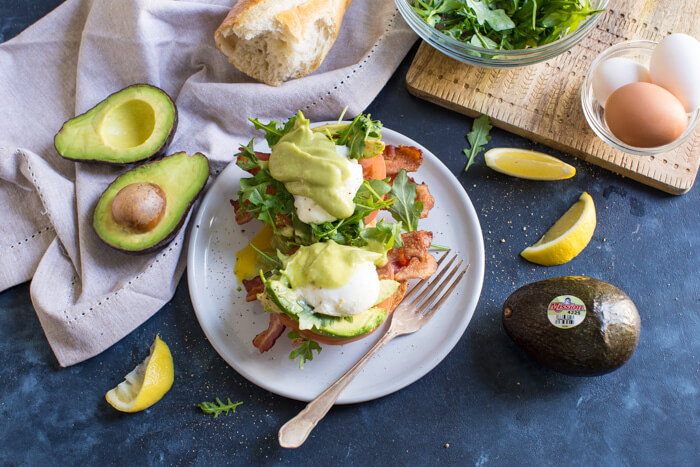
Foods to Avoid While Breastfeeding
We all want a list of which foods to avoid, right? The good news is this is a really short list because research suggests that most food restrictions while nursing are unnecessary.
I always hear mamas say avoid this avoid that, or “what did you eat”…(yep, I heard that one too many times from my mama), but the truth that reasoning is mostly an old wives tale.
Babies tummies and digestive systems are immature when they are born so they all go through a period of getting use to life outside of the womb and may be a little fussy, but for most cases it’s likely nothing you ate, mama!! It’s just them becoming little people. For my boys this peaked around 2ish weeks old and settled down after about 2 months old.
Of course, every baby is different and your doctor will be the best resource for your nursing mama needs.
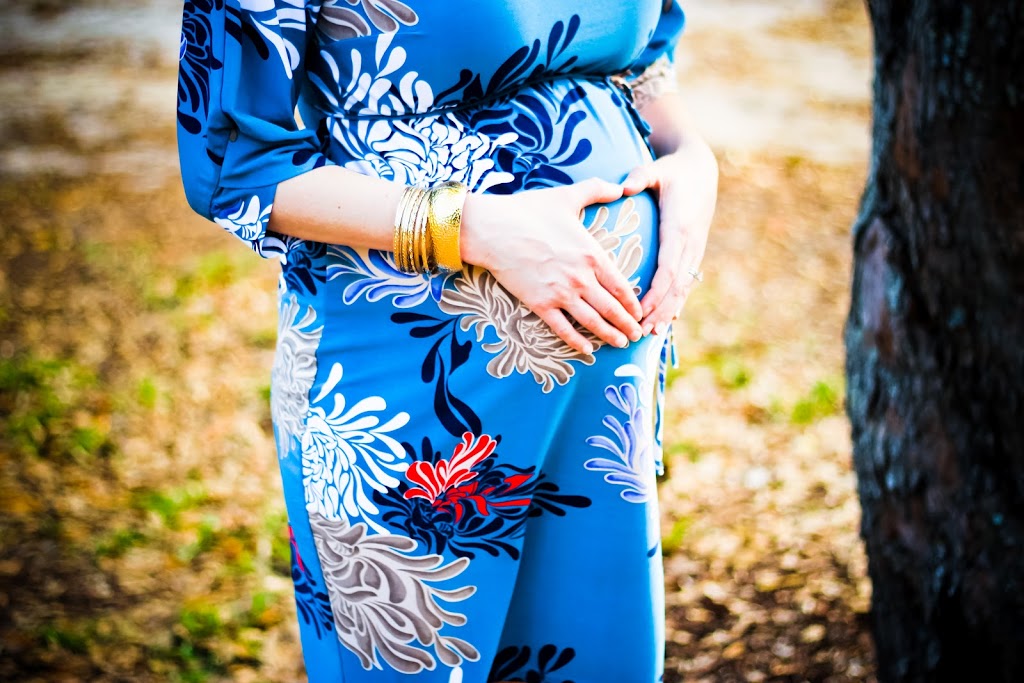
Alcohol
I know, I know… the alcohol talk right?! A lot of mothers are constantly wondering if they are safe to drink alcohol while they are breastfeeding. Though it’s definitely safest to avoid drinking altogether. I can’t say I haven’t had a glass of wine with the gal pals over the years of nursing my little ones.
But we need to play it safe right? Generally, a moderate amount of 1 standard drink every so often is likely not going to affect your baby.
Here are some things to consider if you do choose to consume alcohol while nursing.
- It is important to be aware that the alcohol you consume sticks around in your body for several hours after drinking, with blood alcohol content peaking in the blood 90 minutes after consumption. (Of course there is variability among rates of metabolizing alcohol).
- In general one glass of wine is detectable in your breastmilk for about 2-3 hours. If you have two drinks it is detectable for 4-5 hours.
- You don’t have to “pump and dump”, unless you’re exclusively pumping (or need to express due to fullness). It’s best to dump any milk expressed within a few hours of drinking.
- Pumping will not reduce alcohol in the milk. Breast milk continues to contain alcohol as long as alcohol is still in the mother’s bloodstream.
- It shouldn’t go without being said that if baby receives excessive amounts of alcohol through breastmilk this can lead to developmental delays, infant sleep patterns and disruption in the breastfeeding relationship as it can inhibit milk letdown.
- If you regularly consume alcohol or just need some extra validation that it’s safe to nurse, purchase “Milkscreen Test Strips” that can confirm blood alcohol content in your breastmilk to know when it’s safest to feed baby.
Quick Tip: It’s best to wait at least 2 hours (per drink) after consuming alcohol or until blood alcohol content is back to normal before breastfeeding, being especially cautious to wait for little babies and newborns.
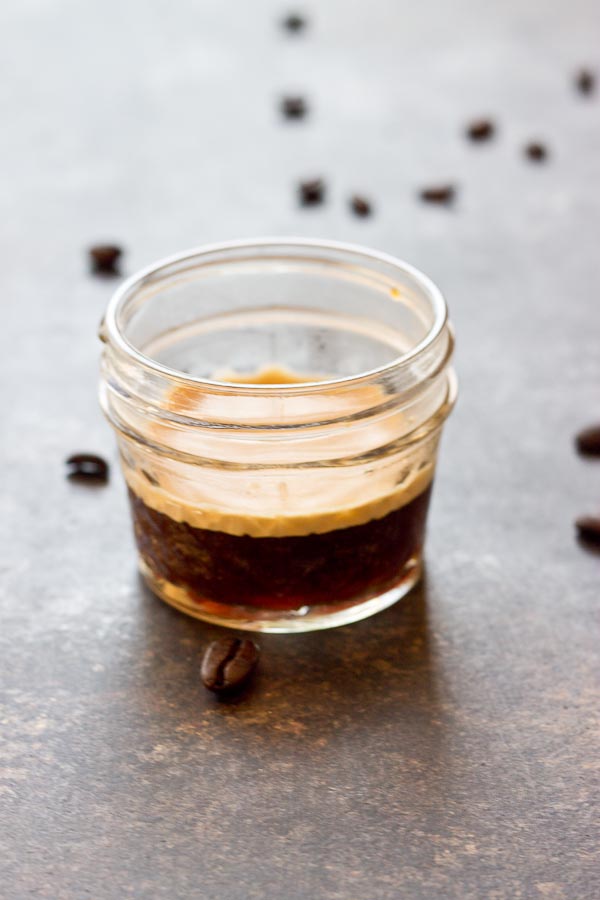
Caffeine
I don’t know any mama that can survive without some caffeine through the day. And if you’ve been following me for some time or peruse recipes on the site, you know I’m a coffee lover.
Maybe your mother in law scolded you for drinking coffee or caffeine in any form so you’re wondering about caffeine in breastfeeding diet.
When we get down to it, the amount of caffeine that transfers to breastmilk is less than 1%. However, consuming more than 3 cups of coffee could begin symptoms of caffeine stimulation in the baby. Newborn babies may seem more irritable with caffeine intake.
Quick Tip: Best strategy for caffeine is to follow similar recommendations that you did during pregnancy, keep it moderate to 1-2 cups per day and you can always opt for half caf or decaf.
High Mercury Fish
Some fish like shark, swordfish, tilefish, king mackerel, and ahi “bigeye” tuna contain a significant amount of mercury. Excessive amounts of mercury passed through breastmilk can potentially harm the development of the nervous system for the little one. So just like during pregnancy, skip the high mercury fish while breastfeeding and during childbearing years.
Quick Tip: To be on the safe side, consume 2-3 servings from fish a week from the “Best List” or 1 serving from the “Good List” and eat a variety of fish.
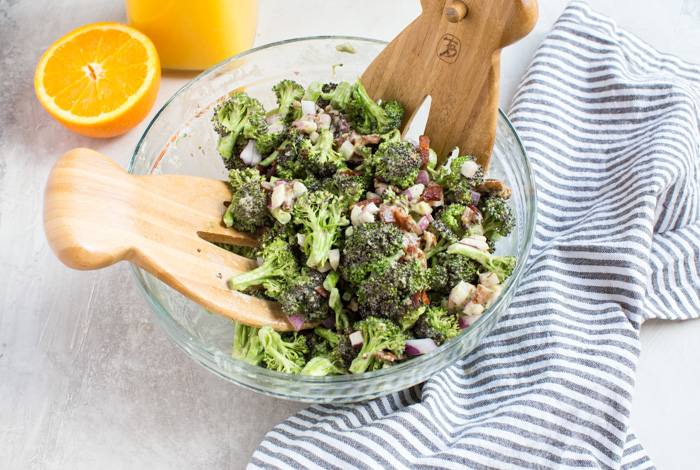
Common Questions from Nursing Mamas
Can you eat sushi while nursing?
Consumption of raw foods by nursing mothers does not really pose an issue for the breastfed infant, though the mother may get food poisoning if she eats contaminated fish! Again, avoid those high mercury fish but as long as you’re eating sushi from a reputable establishment, you’ll be less likely go get foodborne illness.
According to research, “In general, maternal food poisoning does not result in infection in infants except in rare cases of septicemia, where bacteria might reach the breast milk. Even in severe septicemia, there is no need to discontinue breastfeeding if the mother is treated with appropriate antibiotics.”
Will spicy foods affect baby?
Many mothers avoid spicy food because it can potentially cause colic, gas, diarrhea and rashes in the breastfed infant. Is this warranted, likely not.
Strong flavors, like garlic, can make the smell and flavor of breastmilk. But those exposures to these tastes in the womb and while nursing will get their palate ready and may make them more adventurous eaters when starting solids.
Is there a list of gassy foods to avoid with nursing?
Mothers often avoid gassy food, such as cabbage, cauliflower and broccoli as they’ve heard it could make the baby gassy. While these foods may make mama gassy, gas and fiber do not pass into breastmilk. Gassy foods are unlikely to cause an issue for baby.
Foods to avoid during breastfeeding to prevent colic are very individualized. Every little baby is unique. If your baby is one that becomes fussy with these gassy vegetables, increase other nutritious vegetables in your diet.
Can I eat acidic foods when breastfeeding?
I have also been asked if breastfeeding moms should avoid acidic foods because they hear it can change the pH of milk. However, acidic foods, such as pineapple and tomatoes do not change the pH of breastmilk,
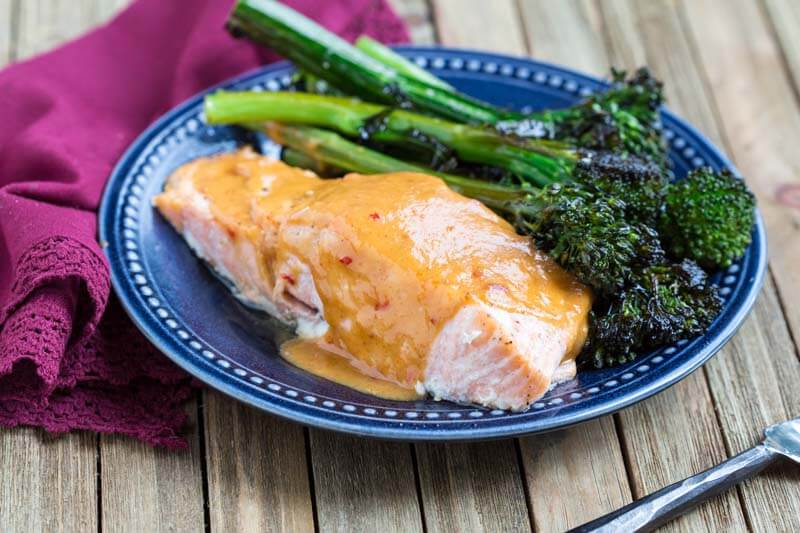
Best Breastfeeding Diet
Breastfeeding can be hard work! In order to supply your baby with all of his or her nutritional needs, you also need to make sure to take care of yourself.
Calories
It takes more energy to breastfeed that to grow a baby. Meaning the postpartum period, is not the time to try a calorie-restricted diet. Although each mom will have different calorie needs, research suggests adding an additional 500 calories each day in comparison to non-pregnant needs makes up for the energy lost through breastfeeding.
Protein
Protein is used to produce breast milk and is important for building and repairing muscle for you and your baby! Breastfeeding moms require an extra 25 grams of protein every day, making the minimum daily requirement 65 grams of protein for lactating mothers.
Fluids
With the craziness of becoming a new mom, drinking water throughout the day may not be the first thing on your mind. However, losing fluid through breastfeeding means more fluid needs to be coming in! Staying adequately hydrated is important for breastfeeding moms to maintain proper milk production.
A common suggestion is to drink a glass of water everytime you feed and keep a water bottle on you at all times. You can mix in some other drinks as well, but be mindful of added sugars and caffeine content.
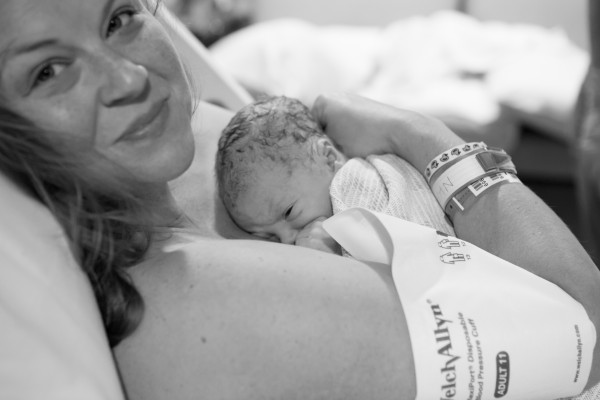
Best Foods to Eat While Breastfeeding
One of the greatest things about the human body is that regardless of if you are eating cookies for every meal or have a well-balanced diet (which is important for MANY other aspects of life), the breast milk you supply to your baby will have the nutrients that they need to grow and thrive.
Hopefully knowing that relieves some stress over feeling the need to obsess over every food that passes your lips, but there are a couple foods that can enrich your milk even more. So instead of worrying so much about what foods to avoid while breastfeeding, aim to enrich your diet and breast milk with these foods.
Oily fish (salmon, low mercury tuna, sardines, anchovies)
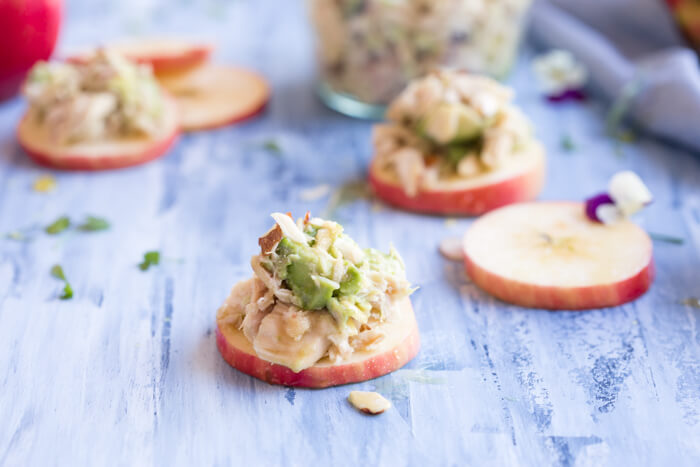
Omega-3s are important for everyone, but especially for lactating mothers. A mom’s stores of this fatty acid will be transferred to breast milk for baby, meaning it is important for a breastfeeding mom to eat adequate amounts for herself and the little one.
One of the best sources of omega-3s are fatty fish, which include salmon, low, mercury tuna, sardines, and anchovies! In addition to being a tasty way to get your omega-3s, fatty fish are also one of the only dietary sources of vitamin D, another important vitamin for breastfeeding moms.
Easy Baked Salmon with Spicy Peanut Butter Glaze
Salmon Sliders with Blueberry Compote
Avocado Tuna Salad on Apple Slices
Tart Cherry Tuna Salad Avocado Bowls
Nuts/seeds (chia seeds, flaxseeds, walnuts)
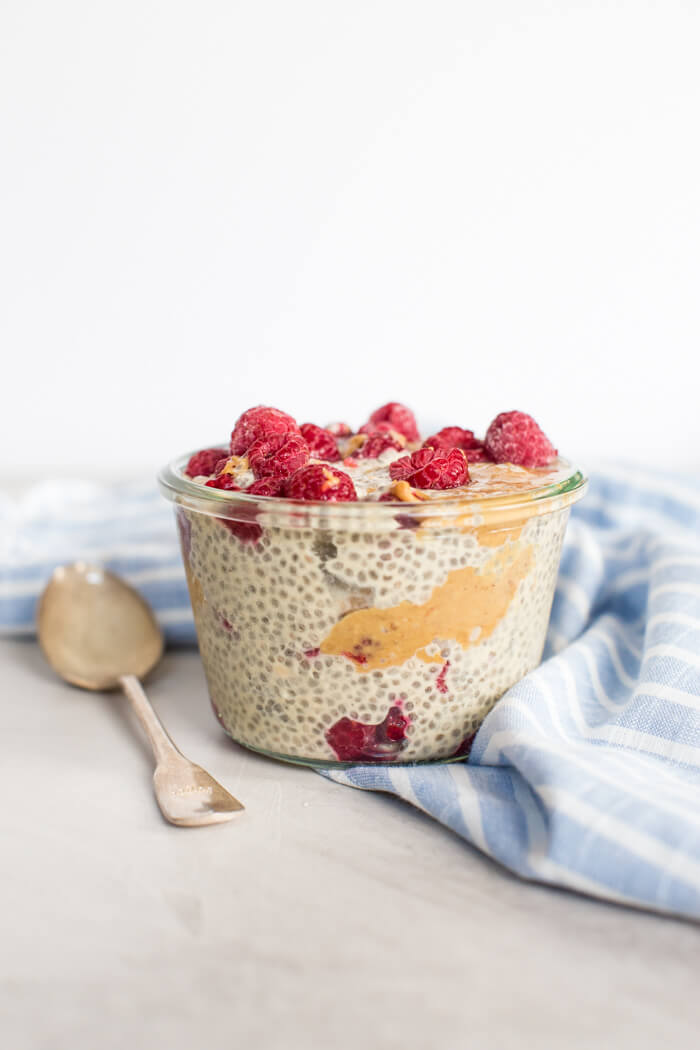
Healthy fats from nuts, seeds, and omega 3 enriched eggs (which come from a diet of strictly flaxseed) are all important for a for your health as as a breastfeeding mama!
Healthy fats, allow your little one to have normal brain and eye development. I am constantly asked if it is safe to consume nuts, nut butters, and seeds during breastfeeding.
Many moms out there are concerned that their baby will develop an allergy if they feed nuts too early. However, this is actually the opposite of the truth. It has been shown that early exposure can actually decrease the risk of peanut allergies and sensitivities in breastfed babies whose mom chooses to eat nuts, nut butters, and seeds.
Here are some of my favorite nursing friendly recipes that include nuts!
Dark Chocolate Cherry & Chia Bark
Healthy Banana Bread Muffins with Walnuts
Irresistible Grain Free Chocolate Chip Cookie Dough Balls
Oats
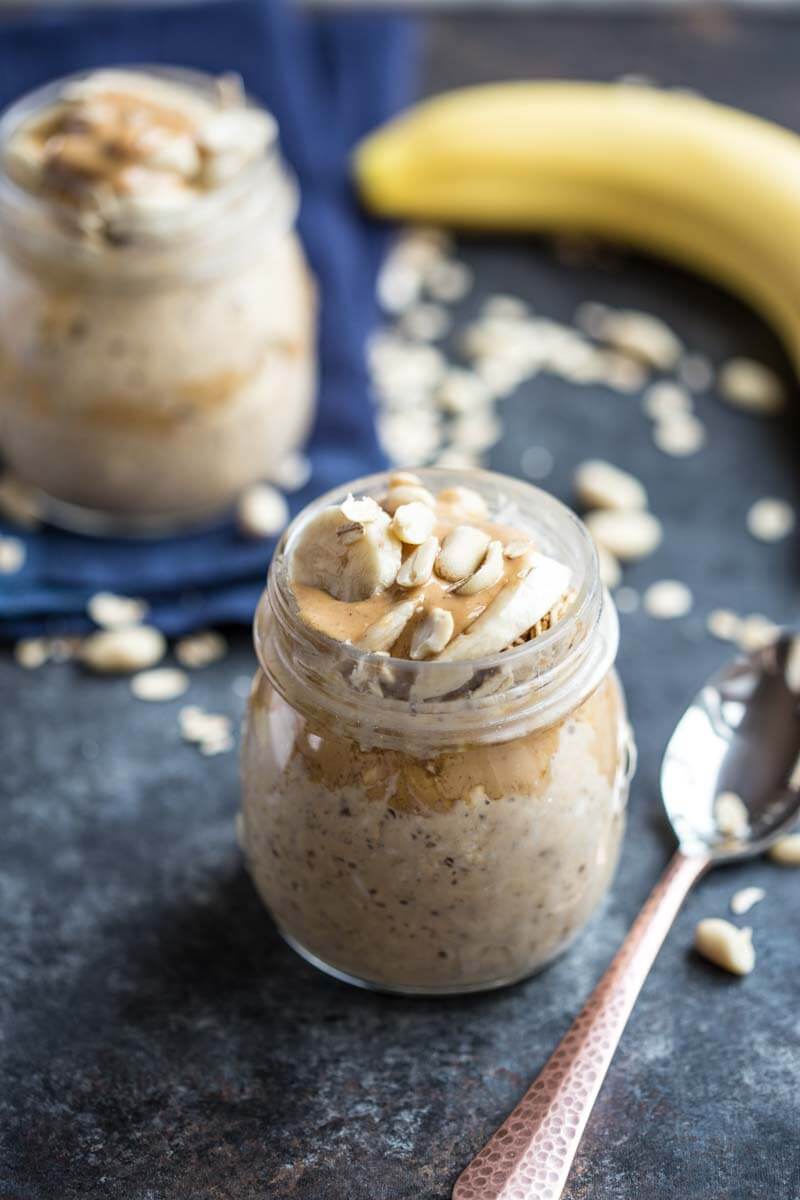
Oats cannot only create a relaxing meal to aide in breastfeeding, but they also contain high amounts of beta-glucan. Beta-glucan is a form of soluble fiber that may in fact increase prolactin levels, which is the breastfeeding hormone! There are so many ways to add oats into your diet.
If oats really are not your thing, barley is another great source of milk-promoting beta-glucan.
Check out some of my favorite oat recipes for nursing mamas!
Turmeric Oats with Cottage Cheese
Maple Pecan Latte Overnight Oats
Peanut Butter Banana Overnight Oats
Cold Brew Coffee Overnight Proats
Cherry Almond Steel Cut Oats made in the Slow Cooker
All the fruits and veggies
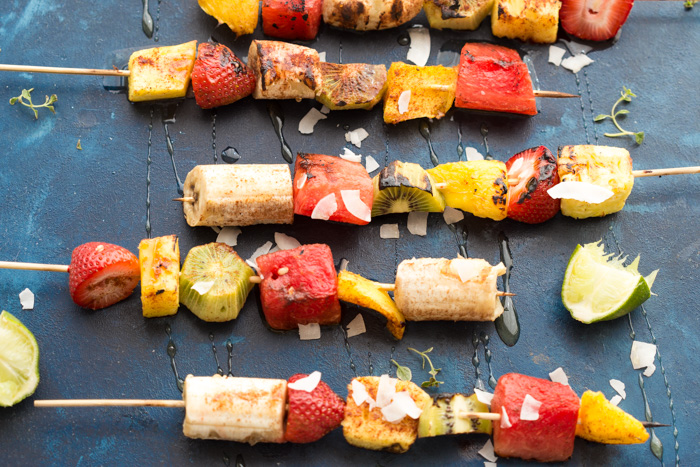
You’ve probably been told a time or two to eat your fruits and veggies! Well it doesn’t stop now! Eating a variety of fruits and vegetables ensures that your breastfed baby is getting the added benefits from those yummy foods.
Choosing a variety and really eating the rainbow allows for more benefits. Different colors of fruits and vegetables give us different phytochemicals. This simply means that different colors give us different health properties.
For example, lycopene from the red produce is heart health and prevents cancer. On the other hand, anthocyanin from purple/blue produce have an antioxidant property that protects cells from damage.
These antioxidants, vitamins and minerals found in plant based foods are helpful to keep mama’s body stored with the essentials while she is nursing, so that baby gets what she needs too.
Here are some of my produce forward recipes!
Honey Lime Grilled Fruit Skewers
Vegetarian Roasted Eggplant Lasagna
High Quality Proteins
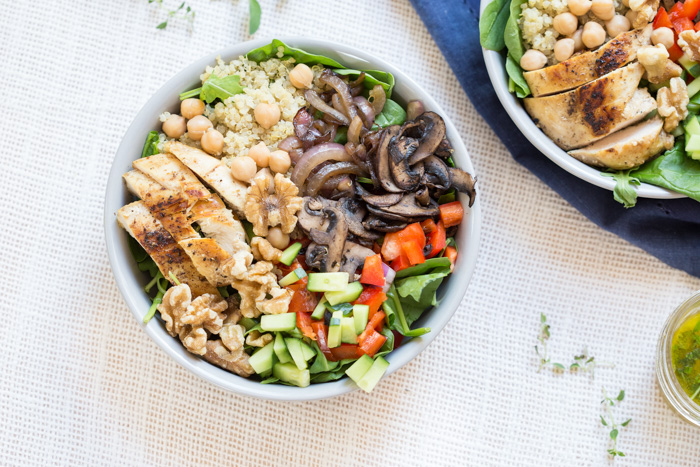
We’ve already talked about the increased protein needs for breastfeeding mamas, and lean meats will help you reach those protein requirements without adding extra saturated fats. I’m all about team good fat.
There are an endless amount of yummy chicken and turkey recipes out there, but here are some of my faves.
Mediterranean Quinoa Chicken Salad
Cranberry and Kale Turkey Burgers
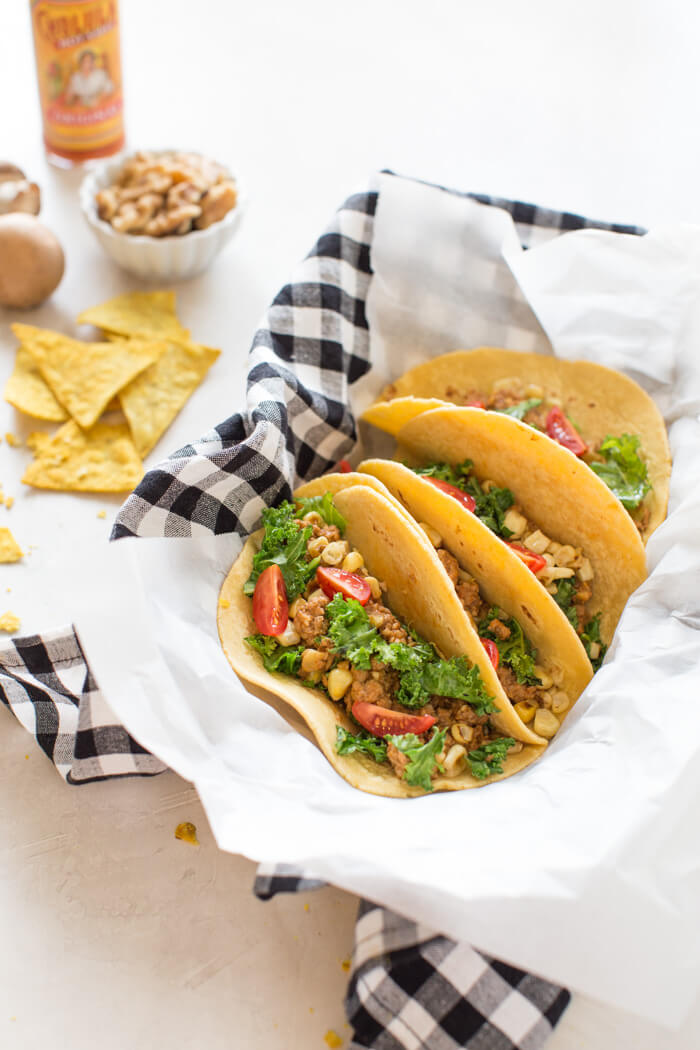
Breastfeeding Vitamins
Vitamin C and Breastfeeding
Nursing moms need a little more vitamin C than when they were pregnant. Those that are older than 18 years old are recommended to get 120 milligrams of vitamin C per day.
I am typically a food first kind of girl, and it’s relatively easy to eat enough vitamin C rich foods, but a multivitamin supplement is also a good insurance plan to cover your bases.
Some foods that are high in vitamin C include: citrus fruits, tomato, bell peppers, potato, and broccoli.
Vitamin D and Breastfeeding
Vitamin D is very important for overall bone health and formation in babies. It prevents rickets, which can be detrimental to the health of an infant. Unfortunately, it is very hard to consume adequate amounts of vitamin D through the diet and getting adequate sun exposure can also be troublesome.
No matter what way you decide to supplement for vitamin D, it is important that both you and your baby do not reach deficient or toxic levels. Vitamin D is a fat soluble vitamin, which means that if you consume excess amounts it will build up in the body, which is why I always recommend to get a blood test to know your levels and take safe amounts when supplementing.
It’s widely recommended for baby and mama to take a daily vitamin D supplement to prevent deficiency. My favorite are the baby liquid vitamin D drops that can be added directly on nipple before offering to baby or mixed into bottle before feeding.
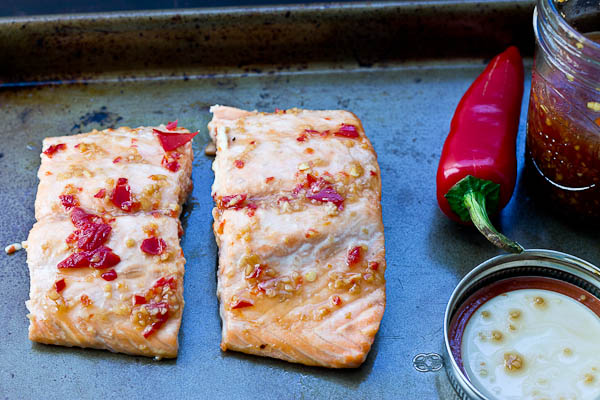
DHA and Breastfeeding
DHA stands for docosahexaenoic acid, which is a long chain omega 3 fatty acid, which is again very important for proper neural development in the baby. Maternal consumption of DHA will increase the DHA level in breast milk.
Some high DHA foods are mackerel, salmon, sardines, and anchovies. However, if you are not eating enough of these foods, experts recommend getting a fish oil supplement that provides 300-600 mg of DHA daily for lactating mothers.
Iron and Breastfeeding
Iron is a mineral that is essential for many processes in the body, including transporting oxygen, and is fundamental for neurological development. Babies are actually born with enough iron stores to last them at least 4-6 months, but after that, they will need to get it through their diet.
No matter how much iron mom eats, breast milk contains a very little amount of iron. Many pediatricians do recommend, exclusively breastfed babies to take an iron supplement that is equal to 1 milligram per kilogram of their body weight!
Prenatal vitamins and postnatal vitamins
Often times, I hear amount mothers using their prenatal vitamin after pregnancy for nursing needs– which is great! While, the needs of pregnant and nursing woman are not identical, a good prenatal vitamin can cover your bases. Do keep in mind not all prenatal and postnatal vitamin are created equal, as some may not even contain iron or adequate vitamin D and omega 3s in which you would need to supplement extra. more iron and folic acid than your typical multivitamin you can buy in a grocery store.
Prenatals are higher in folic acid to help prevent neural tube defects. Iron is important for growth and development, and it prevents anemia! Many postnatal vitamins focus on adding extra vitamin D and B vitamins. It is imperative to get adequate vitamin D so that it transfers through your breast milk to your baby, and both of you are not deficient.
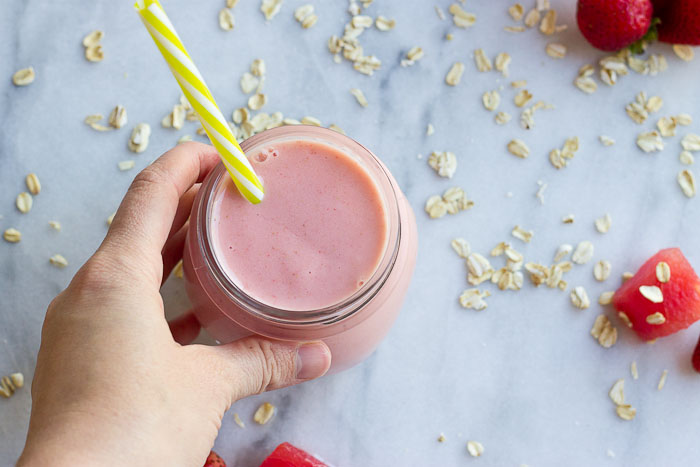
How to Increase Breast Milk Production
Hydration
It is important while breastfeeding to prevent dehydration. Many mothers have found that increasing fluids throughout the day makes breast milk production easier. If you are thirsty you are already dehydrated! Instead of drinking when you are thirsty, try to instead drink more throughout the day and prevent your urine from become dark yellow.
Fenugreek and Breastfeeding
Fenugreek seeds has been heavily researched, and it has shown to increase breast milk in mothers with an insufficient supply. The thought behind this is that fenugreek stimulates sweat production, and the breast acts as a modified sweat gland, meaning this herb can stimulate milk ducts.
Brewer’s Yeast
Brewer’s yeast is considered a galactagogue, which is basically just an herb, food, or medication that might increase milk production in some women. The increase production of milk is seen as a result of an increase in prolactin levels, which initiates the letdown reflex of the breast and aids in milk ejection. You can buy brewer’s yeast in tablets, or add 1-2 tablespoons of a powdered form to smoothies or baked goods to see if it works for you!
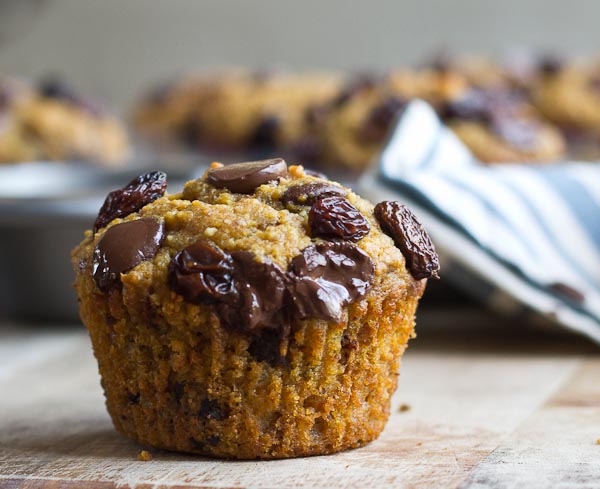
And if you haven’t already, try our MOST PINNED breastfeeding recipe!
“Pump Up Your Milk” Pumpkin Chocolate Chip Lactation Muffins
Other related motherhood posts:
-
How to Heal Postpartum Belly
-
How to Feed Peanut Butter to Baby: 8 ways on early introduction to peanuts
-
Bump date 33 Weeks: Best and Worst Things about Pregnancy (so far)
-
Natural Birth Story: I had a baby on the elevator
-
Parker’s Birth Story
-
Why we chose to cloth diaper our baby
If you liked this article Foods to Avoid while Breastfeeding and How to Increase Milk supply let us know by leaving a comment below. We love hearing from you! You can also tag #loveandzest on social media. To stay up-to-date, FOLLOW US on Instagram @LoveandZest, Pinterest, and Facebook.
Disclosure: This post contains Amazon affiliate links to products we believe in, which means that even though it doesn’t cost you anything extra, Love & Zest will receive a small amount of money from the sale of these items.
Hi I’m Kristina LaRue, RD (registered dietitian nutritionist), Peloton addict and mama to two active and hungry boys. On Love & Zest, you’ll find healthy-ish recipes that fuel the whole family. I’m all about veggie-filled breakfast, meal prep recipes, healthier sweets, and easy weeknight dinners made in the Instant Pot or sheet pan.
Did you make one of my recipes?? Leave a review in the comments and tag @loveandzest #loveandzest on Instagram!
If you’re a modern mama– I’d love for you to join my Facebook group A Modern Motherhood Collective!
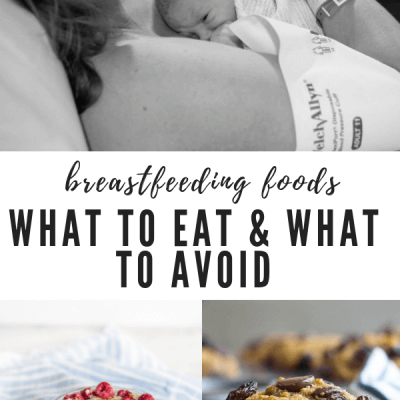
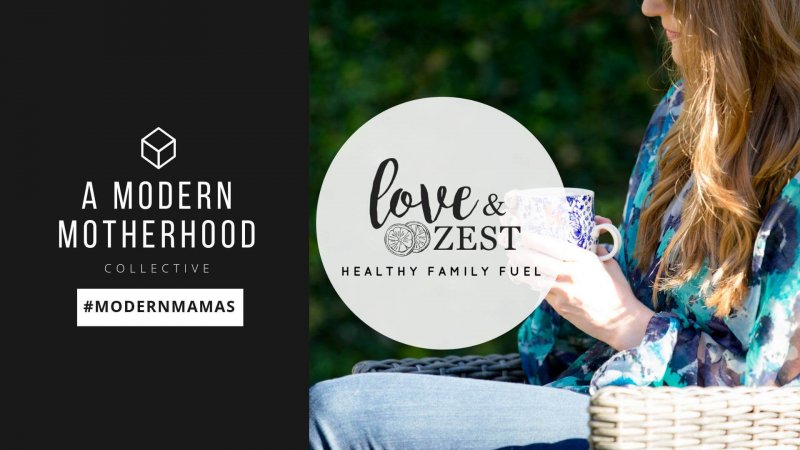


Thank you so much for this blog post!!! Im saving it and will be revisiting in a few weeks!!
Aww yay! best wishes on your journey 🙂